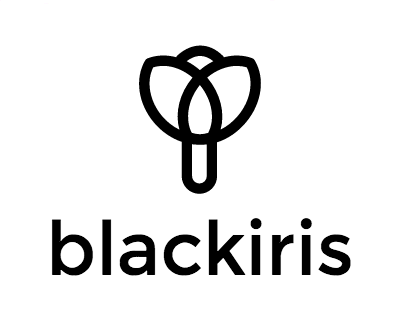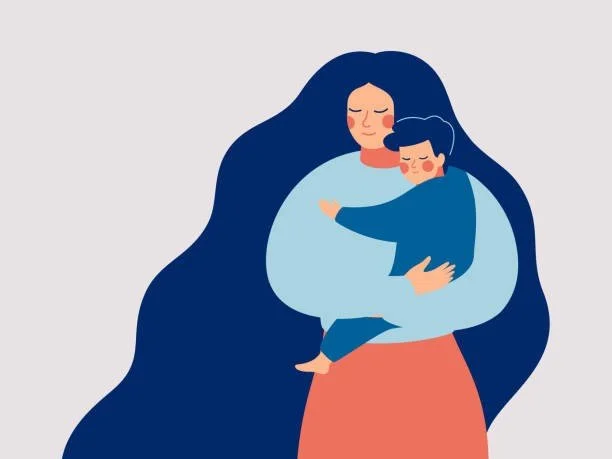Interview with Nicole Louie on Others Like Me - Part 2
In Part One of my interview with Nicole Louie, author of Others Like Me, we discussed the limited number of stories about women without children. In Part Two, we talk about Louie’s own childhood and how she came to choose a different path from her mother and grandmother.
DBN: We left off Part One with you commenting that, “It cannot be that our only legacy in the world as women is to give birth.”
NL: Yes. It’s more than about time that we stop confirming that narrative.
DBN: What you say seems revolutionary. But at the same time, it seems so backward to have to make this point out aloud.
NL: Yes. It sounds basic. But if what it takes is us promoting this view again and again, then that is what we must do.
DBN: Reading your book, I found myself - for the first time - seriously considering the role of motherhood in the overall oppression of women - especially when you talk about your grandmother’s life.
NL: For me, it’s not about how motherhood plays a role in keeping the oppressive patriarchal system intact. It’s about motherhood as a rule; motherhood as the only way to go. If you are taught that motherhood is an option. And if you are taught what the implications of that option are for yourself and for others, and you choose that, it can be a beautiful journey. But easy access to contraception is not a thing in most countries. The Peruvian women I interviewed talked about how Indigenous women, who speak all the other dozens of languages, don’t have access to pills because they don’t speak Spanish and because there are few pharmacists in rural areas.
I once asked my grandmother, “Did you want to be a mom?” And there she was, thinking about it for the first time: “What do you mean!” she said. “That’s what we did back then.” She was thinking at that moment, “Could I not have had a kid?” And I was realizing at that moment, “I don’t think she actually chose to have a kid!” The same thing happens with my mother when I tell her I am trying to put a device in my body to prevent myself from getting pregnant. My mother says, “To be honest, if I had had the chance, I might have done the same.” This is the oppression: All the women in my family never having the option to choose.
DBN: When you think about it, we are not only discouraged from thinking hard about motherhood. We are discouraged from thinking hard about our bodies in general. Sex education for girls is absolutely fraught. For instance, this is the very first year I’ve heard so much talk about menopause, even though it is such an important phase of women’s lives.
NL: As a society we don’t seem to worry about protecting women’s bodies from being exposed online for sexual gratification. We can be spanked, hurt in all kinds of ways, our legs completely spread for you to see everything. But when we put a vagina photo or illustration in a post because we are trying to show what ovarian cancer looks like, that post gets blocked. Or if a woman is trying to show you how to touch your breast to check for breast cancer, that gets blocked. But a guy sucking on a woman’s breast, that’s okay. When women are educating each other, it is not okay. But that is the power of community and sisterhood: When we are learning from each other, talking to each other, sharing with each other, we become aware of how powerful we are.
DBN: Those of us who have children understand why a person might choose not to. At the same, I understood from the book that your mother’s experience and your grandmother’s experience may have played a part in discouraging you. You seem to have been something of a neglected child. Well cared-for but neglected. You were required to be a very mature little girl and perhaps now you want to relax.
NL: Well, I would say all these things contributed- past tense- to how I felt. The reason I structure the book with the headers Looking Back, Looking at Others, Looking Ahead is because I very clearly understood all the things that had made me me up to 2015-2016. Okay, I was neglected. My Mom had me when she was 18. She had this ‘saviour’ relationship with my stepfather where she was so grateful to him for taking us out of poverty that she’d do anything for him. Everybody was beneath him. I grew up with a very clear sense of being second. Which is fine: Not everybody has to be first in relation to their parents.
Then I went to live with my grandmother in my late teens, and I learned about domestic violence. The female eunuch. So, all of those things shaped me, but now what? I can change. I can leave baggage behind. I’ve been doing therapy. How much of who I am is who I want to continue to be? I am not my mother. I am not my grandmother.
DBN: What was one of the revelations you took away from your many interviews with childless/childfree women?
NL: The first thing I learned from talking to other women about not having children is that their reasons were different from mine. Like when one woman says she doesn’t want to have children because she thinks the world is a terrible place. Or another woman talks about environmental reasons: She doesn’t want to have children because she doesn’t think they will have clean water to drink.
I learned the most from talking to a woman who couldn’t have biological children. It was, on the face of it, the expected story of the barren woman. But for me to spend four hours talking with this woman about her inability to have children was a very different and difficult experience. She had had breast cancer and wanted more than anything to have a child. And there was I, sitting across from her, saying I don’t want to have children. It was very hard. Contentious.
DBN: I can’t remember you mentioning your own reasons for not wanting children. Am I forgetting?
NL: I never, ever wanted to be a mom. And then writing this book for 14 years, I was so obsessed! I kept thinking about Doris Lessing and the Golden Notebook and how she left her children behind so she could write. I knew that if I had been a mother while writing this book, I would have abandoned my children.
DBN: Finally, Nicole, tell me about your relationship with your mentor, the poet and writer Molly Peacock, who has also written a gorgeous memoir (Paradise Piece by Piece) about the evolution of a female artist who chooses not to have children.
NL: Molly was the difference between me finishing this book and not finishing it. Maybe I could have finished it on my own, but not with this level of quality and this level of confidence. I wrote it in my second language -English -which meant I kept editing myself, questioning myself. I left everything behind to write this book – my country, my family, my husband, my job. At some point, I began to think I was a megalomaniac who was only imagining that what I was writing was important.
So, I needed a mentor; somebody to be brutally honest with me. Molly was the one who kept telling me: “You can do this!” In December 2022, I was ready to give up, after the book was rejected for the 24th time. I told Molly that I did not think I could do another round of submissions. I would just go back and find another job, because it was my second year without an income. But Molly said, ‘Let’s get on a call.”
“You can do this,” she said. “You just need to try again.” So, I tried again in January and the offer came in May.
I spoke to Nicole Louie via Zoom on November 1, 2024. Others Like Me would make a wonderful Christmas gift as would Molly Peacock’s Paradise Piece by Piece.






